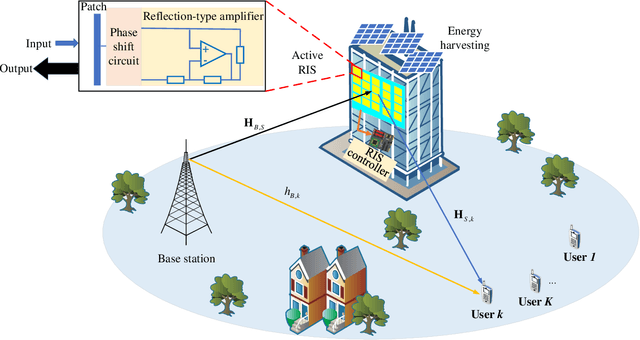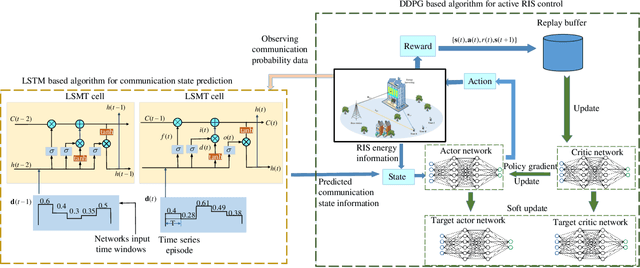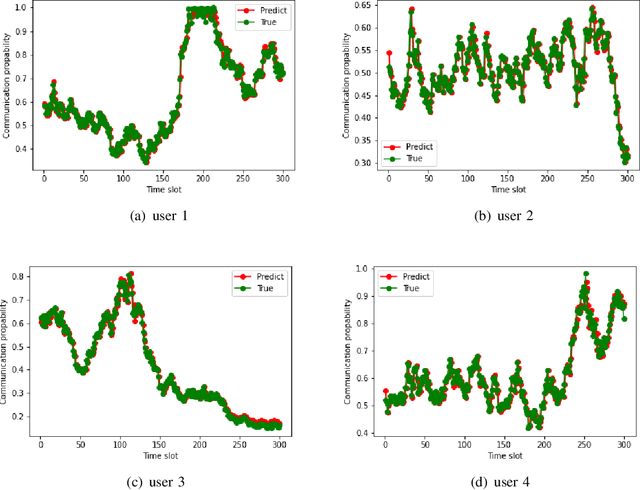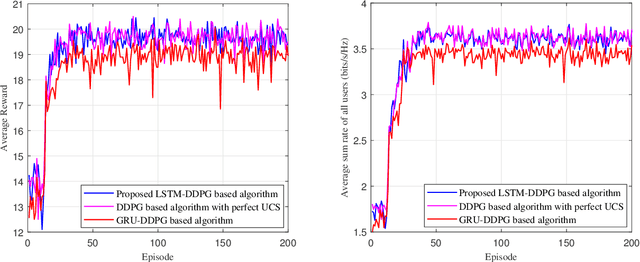Active RIS-aided EH-NOMA Networks: A Deep Reinforcement Learning Approach
Paper and Code
Apr 11, 2023



An active reconfigurable intelligent surface (RIS)-aided multi-user downlink communication system is investigated, where non-orthogonal multiple access (NOMA) is employed to improve spectral efficiency, and the active RIS is powered by energy harvesting (EH). The problem of joint control of the RIS's amplification matrix and phase shift matrix is formulated to maximize the communication success ratio with considering the quality of service (QoS) requirements of users, dynamic communication state, and dynamic available energy of RIS. To tackle this non-convex problem, a cascaded deep learning algorithm namely long short-term memory-deep deterministic policy gradient (LSTM-DDPG) is designed. First, an advanced LSTM based algorithm is developed to predict users' dynamic communication state. Then, based on the prediction results, a DDPG based algorithm is proposed to joint control the amplification matrix and phase shift matrix of the RIS. Finally, simulation results verify the accuracy of the prediction of the proposed LSTM algorithm, and demonstrate that the LSTM-DDPG algorithm has a significant advantage over other benchmark algorithms in terms of communication success ratio performance.
 Add to Chrome
Add to Chrome Add to Firefox
Add to Firefox Add to Edge
Add to Edge